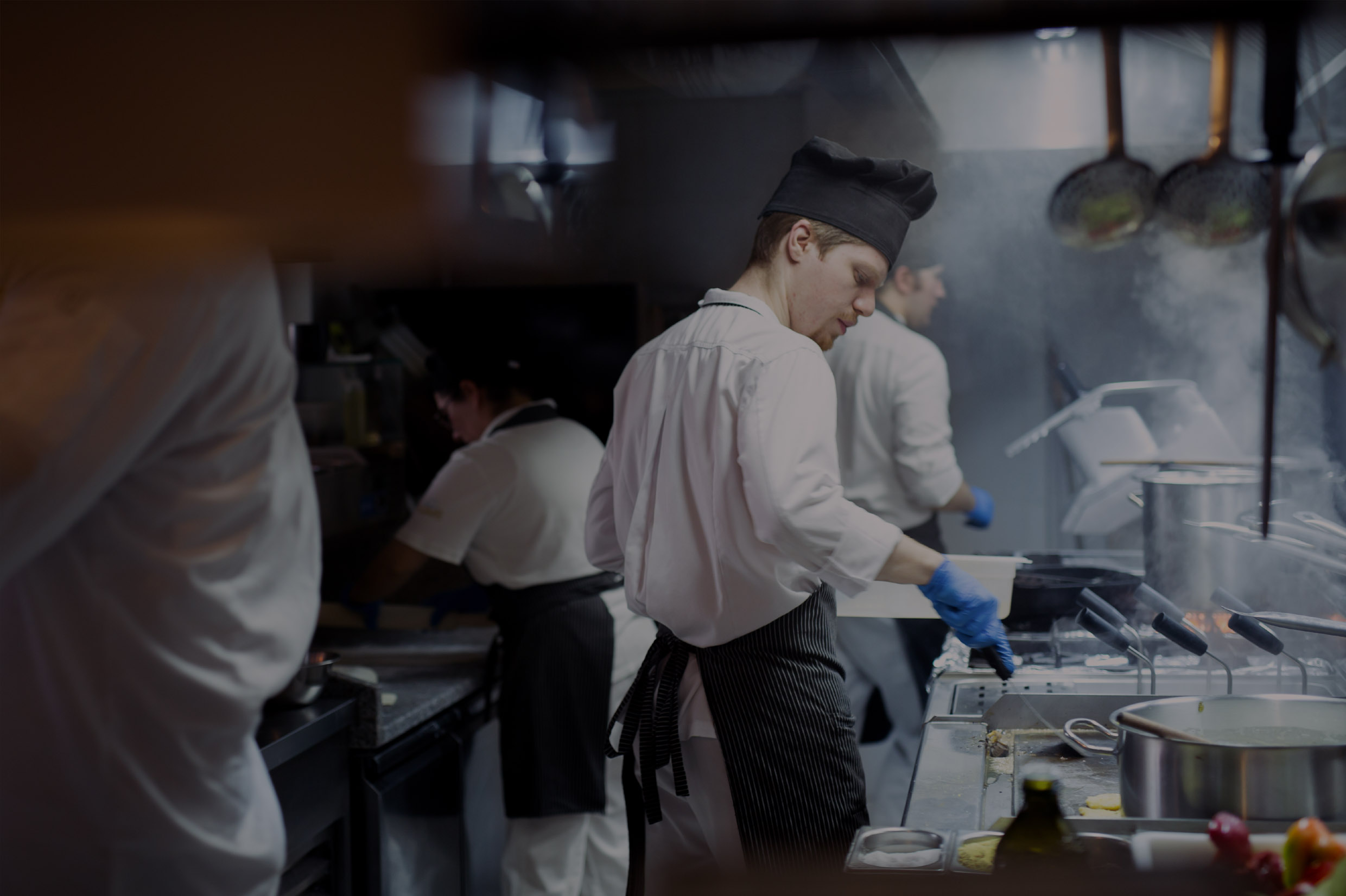
Foreign Workers Have Saved the Catering Industry

HORECA Speaks: Michelle Muscat
October 25, 2024
Where Every Detail Counts: A Discussion with Food Photographer Sandor Venczel
October 26, 2024Article by the Mediterranean Culinary Academy (MCA)
This article addresses a persistent issue in the catering
industry on the island, misconceptions about food and service.
Let's start with the facts and understand why Malta's food industry has changed significantly over the past fifteen to twenty years.
Several factors have led to an influx of foreign workers, especially in catering. The global COVID-19 pandemic was a major catalyst. While it's hard to pin down exact numbers, anecdotal evidence suggests that 15% to 25% of the catering workforce left the industry permanently.
Some were newcomers, but others had decades of experience. To replace a seasoned Chef with 20 years of experience, we now need three Chefs with only a few years under their belt.
Similarly, experienced servers capable of running a small restaurant alone are now replaced by three to four less experienced individuals. Additionally, work expectations have evolved.
Chefs and restaurant workers today rightfully expect scheduled leaves and days off. They no longer accept working six to seven days straight, 12 hours each shift. Work-life balance is crucial, necessitating more personnel to avoid overburdening staff.
This shift in expectations is not unique to Malta; it's a global trend reflecting broader changes in workforce attitudes towards employment and personal life.
The old model of relentless work hours is being replaced by a more sustainable approach, benefiting both employees and employers in the long run.
The number of restaurants has also surged, with approximately 3,500 catering establishments now on the island. This growth is expected to continue as more hotels are built and tourism expands. There's a critical need for foreign workers unless there's a comprehensive plan for sustainable tourism—a topic that warrants its own discussion.
The rapid increase in establishments creates a demand that simply cannot be met by the local population alone. Moreover, this growth in the number of restaurants and hotels is a double-edged sword. On one hand, it boosts the economy and creates jobs; on the other hand, it strains resources and infrastructure, requiring careful management and planning.
Regarding service quality, complaints often center around language proficiency. Many feel service has regressed, yet if we reflect honestly, service and food quality were not universally exceptional in the past. I remember instances of being ignored by local waiters, hoping someone would eventually bring a menu.
This wasn't an isolated experience; it was a common frustration among patrons who used to walk into a restaurant and be ignored for 20 minutes. Today, while English-speaking servers are common, complaints persist about servers not speaking Maltese. Ironically, patrons might praise Italian-speaking staff in Italian restaurants, yet criticize non-Maltese speakers elsewhere.
This double standard reflects biases that need addressing. It's a contradiction that reveals underlying prejudices, showing that the issue is not just about language but about deeper cultural attitudes. The influx of foreign workers has fortunately brought a rich diversity to the culinary scene.
Different nationalities bring their unique flavors, techniques, and culinary traditions, enriching the local food culture. This diversity is not just a novelty; it's a strength that enhances the overall dining experience.
Walking into a restaurant and being greeted by a variety of accents and cuisines shows a new cosmopolitan atmosphere that is a testament to Malta's evolving identity as a global hub.
However, this transformation hasn't been without its challenges. Integrating diverse cultures within the workforce requires sensitivity and open mindedness from both employers and local staff.
Furthermore, the notion that Maltese workers are inherently superior in service roles is a misconception. The reality is that service quality depends on individual dedication and training, not nationality. Embracing diversity can lead to a more vibrant and competitive catering industry.
Finally, it's arguable that foreign influence has enhanced Malta's catering industry. Many celebrated Chefs and Restaurant Managers gained invaluable experience abroad, contributing positively to the local culinary scene. When evaluating service, perhaps a bit more empathy and understanding can go a long way. Foreign workers often face challenges such as homesickness, cultural adjustment, and language barriers.
Recognizing these challenges and providing support can improve their well being and performance. To conclude, the contributions of foreign workers are integral to the industry's progress. They've helped fill gaps left by those who left, brought diverse experiences, and elevated standards.
Instead of criticism, let's acknowledge their contributions and strive for inclusivity and fairness in our perceptions and judgments. The future of Malta's catering industry depends on embracing diversity, fostering mutual respect, and working together to create a welcoming environment for all.
By doing so, we can ensure that Malta continues to thrive as a culinary destination, offering rich and diverse dining experiences for locals and tourists alike.
This article addresses a persistent issue in the catering
industry on the island, misconceptions about food and service.
Normally, I discuss various aspects of the food industry or
share my thoughts on how we perceive food. However, it's
time to confront a narrative that has persisted for too long.
Let's start with the facts and understand why Malta's food industry has changed significantly over the past fifteen to twenty years.
Several factors have led to an influx of foreign workers, especially in catering. The global COVID-19 pandemic was a major catalyst. While it's hard to pin down exact numbers, anecdotal evidence suggests that 15% to 25% of the catering workforce left the industry permanently.
Some were newcomers, but others had decades of experience. To replace a seasoned Chef with 20 years of experience, we now need three Chefs with only a few years under their belt.
Similarly, experienced servers capable of running a small restaurant alone are now replaced by three to four less experienced individuals. Additionally, work expectations have evolved.
Chefs and restaurant workers today rightfully expect scheduled leaves and days off. They no longer accept working six to seven days straight, 12 hours each shift. Work-life balance is crucial, necessitating more personnel to avoid overburdening staff.
This shift in expectations is not unique to Malta; it's a global trend reflecting broader changes in workforce attitudes towards employment and personal life.
The old model of relentless work hours is being replaced by a more sustainable approach, benefiting both employees and employers in the long run.
The number of restaurants has also surged, with approximately 3,500 catering establishments now on the island. This growth is expected to continue as more hotels are built and tourism expands. There's a critical need for foreign workers unless there's a comprehensive plan for sustainable tourism—a topic that warrants its own discussion.
The rapid increase in establishments creates a demand that simply cannot be met by the local population alone. Moreover, this growth in the number of restaurants and hotels is a double-edged sword. On one hand, it boosts the economy and creates jobs; on the other hand, it strains resources and infrastructure, requiring careful management and planning.
Regarding service quality, complaints often center around language proficiency. Many feel service has regressed, yet if we reflect honestly, service and food quality were not universally exceptional in the past. I remember instances of being ignored by local waiters, hoping someone would eventually bring a menu.
This wasn't an isolated experience; it was a common frustration among patrons who used to walk into a restaurant and be ignored for 20 minutes. Today, while English-speaking servers are common, complaints persist about servers not speaking Maltese. Ironically, patrons might praise Italian-speaking staff in Italian restaurants, yet criticize non-Maltese speakers elsewhere.
This double standard reflects biases that need addressing. It's a contradiction that reveals underlying prejudices, showing that the issue is not just about language but about deeper cultural attitudes. The influx of foreign workers has fortunately brought a rich diversity to the culinary scene.
Different nationalities bring their unique flavors, techniques, and culinary traditions, enriching the local food culture. This diversity is not just a novelty; it's a strength that enhances the overall dining experience.
Walking into a restaurant and being greeted by a variety of accents and cuisines shows a new cosmopolitan atmosphere that is a testament to Malta's evolving identity as a global hub.
However, this transformation hasn't been without its challenges. Integrating diverse cultures within the workforce requires sensitivity and open mindedness from both employers and local staff.
Furthermore, the notion that Maltese workers are inherently superior in service roles is a misconception. The reality is that service quality depends on individual dedication and training, not nationality. Embracing diversity can lead to a more vibrant and competitive catering industry.
Finally, it's arguable that foreign influence has enhanced Malta's catering industry. Many celebrated Chefs and Restaurant Managers gained invaluable experience abroad, contributing positively to the local culinary scene. When evaluating service, perhaps a bit more empathy and understanding can go a long way. Foreign workers often face challenges such as homesickness, cultural adjustment, and language barriers.
Recognizing these challenges and providing support can improve their well being and performance. To conclude, the contributions of foreign workers are integral to the industry's progress. They've helped fill gaps left by those who left, brought diverse experiences, and elevated standards.
Instead of criticism, let's acknowledge their contributions and strive for inclusivity and fairness in our perceptions and judgments. The future of Malta's catering industry depends on embracing diversity, fostering mutual respect, and working together to create a welcoming environment for all.
By doing so, we can ensure that Malta continues to thrive as a culinary destination, offering rich and diverse dining experiences for locals and tourists alike.

Kurt Mifsud
A gastronome by profession, Kurt has worked in both fine dining as well as casual
restaurants after which he attended the University of Gastronomic Sciences in Italy where he
contributed to the organisation of the university’s first study trip to Malta. He led the Maltese delegation
to the First edition of the “Slow Food Youth Network International Conference”, at the Milan Expo.
Since founding The Mediterranean Culinary Academy in 2017, Kurt has overseen the development of the award winning monovarietal endemic extra virgin olive oil Bidni, seen over 4000 students pass through its doors, and helped in the organisation of hundreds of different culinary events.
For more information visit https://www.mcamalta.com/
Click here to see Horeca Issue 17 online



